Just watched 2025 Volvo EX30 Review Roundup: Great Little EV, But Not Perfect Not bad..after getting used to the screen. Read the NACS in 2025.. price!Hoping Volvo has the NACS adapter and backend payment system ready once the EX30 starts deliveries this summer.
The EX30 should be very popular.
Good VWs latest in EV software is also finally working and they need their NACS ducks in a row also.
ID4 and EX30 could be huge sellers this summer.
Welcome to Tesla Motors Club
Discuss Tesla's Model S, Model 3, Model X, Model Y, Cybertruck, Roadster and More.
Register
Install the app
How to install the app on iOS
You can install our site as a web app on your iOS device by utilizing the Add to Home Screen feature in Safari. Please see this thread for more details on this.
Note: This feature may not be available in some browsers.
-
Want to remove ads? Register an account and login to see fewer ads, and become a Supporting Member to remove almost all ads.
You are using an out of date browser. It may not display this or other websites correctly.
You should upgrade or use an alternative browser.
You should upgrade or use an alternative browser.
Prediction, in Which Year Will New Electric Vehicle Sales Exceed 50% in the United States "Poll"
- Thread starter SDRick
- Start date
The trick will be to get a buyer that wants a Toy Rav 4 Prime PHEV to consider a EX30 or other similar sized BEVJust watched 2025 Volvo EX30 Review Roundup: Great Little EV, But Not Perfect Not bad..after getting used to the screen. Read the NACS in 2025.. price!
ItsNotAboutTheMoney
Well-Known Member
That'll be the car that has led to the news that EuroNCAP will require physical buttons for key controls for a 5 star safety rating.Just watched 2025 Volvo EX30 Review Roundup: Great Little EV, But Not Perfect Not bad..after getting used to the screen. Read the NACS in 2025.. price!
Seems comparable to the old Kona EV (that I have). Slightly larger dimensions. (166.7 x 72.3 x 61 v 165″ L x 71″ W x 61″ H).
Much faster charging. (27 mins 10% to 80% v 47 mins - for Kona ideally you leave around 71-73%)
Less cargo space though. 14.1/31.9 v 19.2/45.8.
Very good price for a vehicle with NCM but that touchscreen dependency is a big fat no from me.
Last edited:
ItsNotAboutTheMoney
Well-Known Member
Only if they don't need a lot of cargo or rear passenger space.The trick will be to get a buyer that wants a Toy Rav 4 Prime PHEV to consider a EX30 or other similar sized BEV
The EX30 dimensions suggest that it's quite roomy up front, but it has less rear leg room than my Kona EV and that doesn't have much.
And the cargo capacity of a RAV4 Prime is _much_ higher.
Space comparison, back and with seats folded:
RAV4 prime 33 ft cubed/ 59
EX30 11/32
Wow, you were spot on, no comparison
let’s compare to
MY 31/72
Then cost
MY AWD $43K
RAV4 prime $43K
Less tax credits
MY $34K Fed plus state average
RAV4 $43K no credits available
Seems like an easy choice
RAV4 prime 33 ft cubed/ 59
EX30 11/32
Wow, you were spot on, no comparison
let’s compare to
MY 31/72
Then cost
MY AWD $43K
RAV4 prime $43K
Less tax credits
MY $34K Fed plus state average
RAV4 $43K no credits available
Seems like an easy choice
cusetownusa
2022 LR5 MSM/Bl | 19"
The EX30 is very small. Smaller than the XC40 Recharge which felt very small to me compared to my Model Y.
good to know, you opened my eyes, not sure how many people will want the $36K micro vehicleThe EX30 is very small. Smaller than the XC40 Recharge which felt very small to me compared to my Model Y.
just shows you again, at this time, what an amazing value the MY is
until the M2 arrives setting the next value point in 2025/26
the BYD seagull is $9.7K in China, adding USA safety and other govt regulations, assuming built in Mexico, would raise it price to $12K
lets move to 2027
less IRA tax credits, due to being built in Mexico, could mean the Seagull/Dolphin Mini would cost in the USA $2K after $10K in tax credits
vs M2 $23K less $10K tax credits or $13K
$2K vs $13K
insane, china is going to kill the USA vehicle companies whereas even Tesla cannot compete
summarizing, EX30 has no chance at all surviving long term
cwerdna
Well-Known Member
Don't know where the "$10K in tax credits" comes from.
Volvo's a tiny player in the US auto market and isn't known for good reliability. I've never had any interest in their vehicles and it's not likely they'd be on my list due to reliability + numerous other reasons. See About Volvo - Sales Volumes - Volvo Car USA Newsroom + post 655. Compare with bigger players (e.g. at https://www.goodcarbadcar.net/2023-us-vehicle-sales-figures-by-brand/).
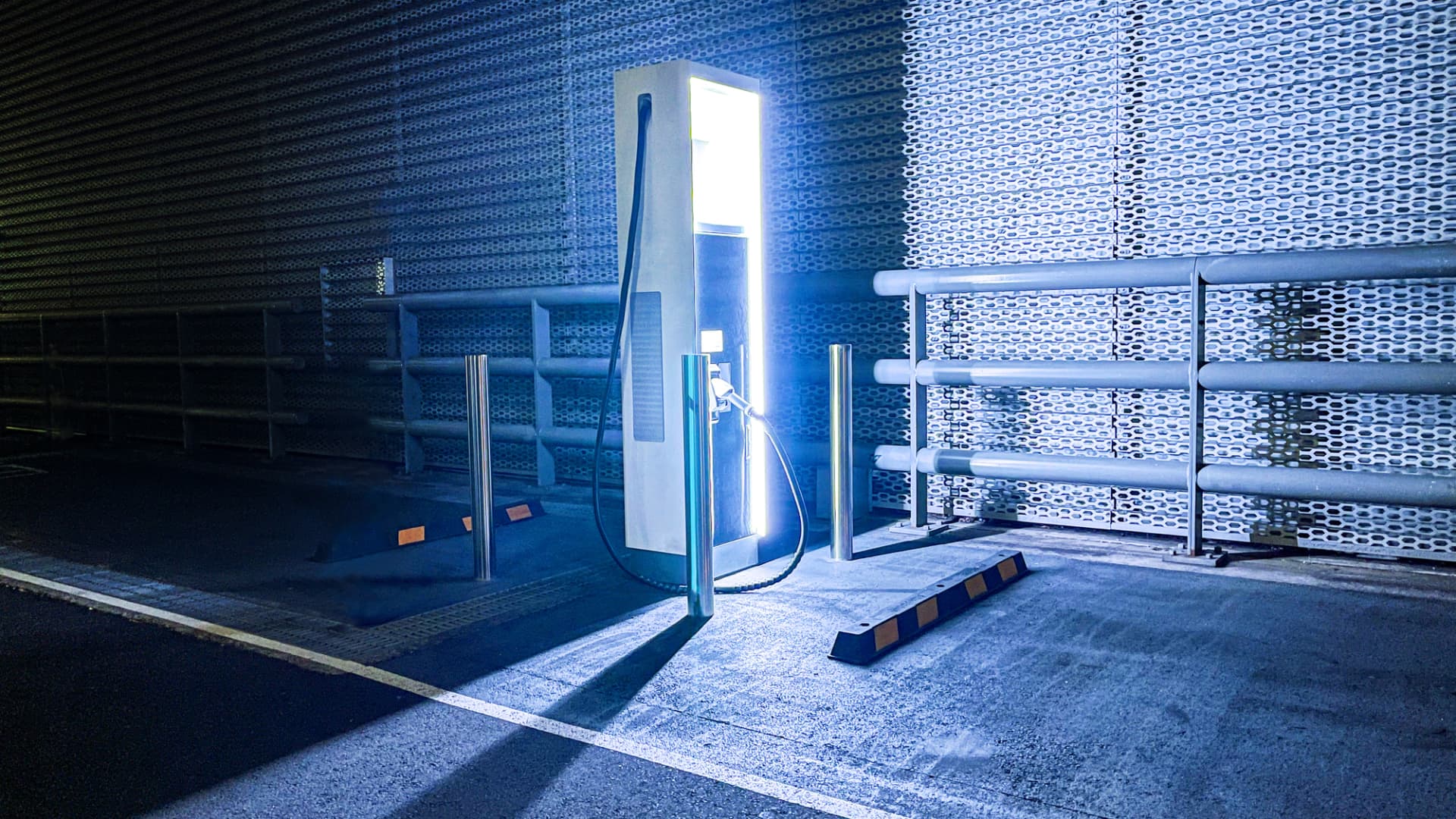
 www.cnbc.com
www.cnbc.com
Volvo's a tiny player in the US auto market and isn't known for good reliability. I've never had any interest in their vehicles and it's not likely they'd be on my list due to reliability + numerous other reasons. See About Volvo - Sales Volumes - Volvo Car USA Newsroom + post 655. Compare with bigger players (e.g. at https://www.goodcarbadcar.net/2023-us-vehicle-sales-figures-by-brand/).

EV euphoria is dead. Automakers trumpet consumer choice for U.S. car shoppers
Automakers from Ford and GM to Mercedes-Benz, Volkswagen and Aston Martin are scaling back or delaying their electric vehicle plans.
Last edited:
typical combo of fed $7500 plus a state credit, in Colorado think its bigDon't know where the "$10K in tax credits" comes from.
Volvo's a tiny player in the US auto market and isn't known for good reliability. I've never had any interest in their vehicles and it's not likely they'd be on my list due to reliability + numerous other reasons. See About Volvo - Sales Volumes - Volvo Car USA Newsroom + post 655. Compare with bigger players (e.g. at https://www.goodcarbadcar.net/2023-us-vehicle-sales-figures-by-brand/).

EV euphoria is dead. Automakers trumpet consumer choice for U.S. car shoppers
Automakers from Ford and GM to Mercedes-Benz, Volkswagen and Aston Martin are scaling back or delaying their electric vehicle plans.www.cnbc.com
cwerdna
Well-Known Member
For many states, it’s $0. CA had CVRP Home | Clean Vehicle Rebate Project but it’s dead and I’ve never qualified. And, as you know, the % requirements for Federal tax credit get tougher over time: Alternative Fuels Data Center: Electric Vehicle (EV) and Fuel Cell Electric Vehicle (FCEV) Tax Credit. I also don’t qualify ever since the income caps were introduced.typical combo of fed $7500 plus a state credit, in Colorado think its big
Also, many states charge additional registration fees for having an EV. It’s likely that will continue to spread as gasoline tax revenue goes down. Someone still has to pay to maintain the roads.
cwerdna
Well-Known Member
There was also CA EV Resources and Incentives (Clean Fuel Reward) but that's also dead.
EV winter? Tesla sales cooling, while Fisker is wobbling
Hertz Replaces CEO Scherr After Big Bet on EVs Fizzles
And, just because BYD will build and complete a Mexico plant sometime years from now, production ramp up will take time and remember, besides North American assembly, there are critical minerals and battery component requirements (Alternative Fuels Data Center: Electric Vehicle (EV) and Fuel Cell Electric Vehicle (FCEV) Tax Credit). Even if you were to exclude where Seagull is assembled now, I highly doubt the vehicle meets the 2024 US tax credit requirements, let alone what's needed years from now. That will have to be resolved too in order to receive $7500. This also assumes that the US govt or some other bodies don't put up barriers against BYD and/or Chinese automakers or foreign automakers assemblng in Mexico or Canada.
We’re also well past the point of small automobiles esp. small EVs doing well in terms of sales in the US. We’re littered with examples of such small cars going away or not doing well (e.g. Spark EV compliance car, Fiat 500e gen 1 compliance car, Smart ForTwo ICE and EV). 3-cylinder Mitsubishi Mirage isn’t exactly a popular vehicle. Ford Fiesta, Scion iQ, ICE Chevy Spark and Sonic are dead.
We will see in a few years.
EV winter? Tesla sales cooling, while Fisker is wobbling
Hertz Replaces CEO Scherr After Big Bet on EVs Fizzles
Frankly, I think the idea of a $2K after credits/incentive BYD Seagul in the US is fantasy. I doubt your $12K is right either. It's going to be higher.the BYD seagull is $9.7K in China, adding USA safety and other govt regulations, assuming built in Mexico, would raise it price to $12K
lets move to 2027
less IRA tax credits, due to being built in Mexico, could mean the Seagull/Dolphin Mini would cost in the USA $2K after $10K in tax credits
vs M2 $23K less $10K tax credits or $13K
$2K vs $13K
insane, china is going to kill the USA vehicle companies whereas even Tesla cannot compete
summarizing, EX30 has no chance at all surviving long term
And, just because BYD will build and complete a Mexico plant sometime years from now, production ramp up will take time and remember, besides North American assembly, there are critical minerals and battery component requirements (Alternative Fuels Data Center: Electric Vehicle (EV) and Fuel Cell Electric Vehicle (FCEV) Tax Credit). Even if you were to exclude where Seagull is assembled now, I highly doubt the vehicle meets the 2024 US tax credit requirements, let alone what's needed years from now. That will have to be resolved too in order to receive $7500. This also assumes that the US govt or some other bodies don't put up barriers against BYD and/or Chinese automakers or foreign automakers assemblng in Mexico or Canada.
We’re also well past the point of small automobiles esp. small EVs doing well in terms of sales in the US. We’re littered with examples of such small cars going away or not doing well (e.g. Spark EV compliance car, Fiat 500e gen 1 compliance car, Smart ForTwo ICE and EV). 3-cylinder Mitsubishi Mirage isn’t exactly a popular vehicle. Ford Fiesta, Scion iQ, ICE Chevy Spark and Sonic are dead.
We will see in a few years.
Last edited:
David_Cary
Active Member
Agreed that tiny cars and cars from China will have struggles. Currently so much of a car purchase is wealth signaling. People who can barely drive buy AMGs. Single people drive Explorers. City dwellers buy jeeps.
Logic and economics seem to be secondary considerations.
Economics strongly favors used cars. So arguably most of the new car market is driven by people with less than average intelligence.
But - there could certainly be a market at a certain price point. If you could buy a new EV for $15k out the door with a nice warranty, you might steal a chunk of the current used market.
Some of us can hope that the US government would finally get serious about climate change and ramp up the taxation on carbon which would return some trend to smaller cars. Not sure what it would take. We breached 1.5C with barely a whisper. Is there a threshold that would get us there?
Logic and economics seem to be secondary considerations.
Economics strongly favors used cars. So arguably most of the new car market is driven by people with less than average intelligence.
But - there could certainly be a market at a certain price point. If you could buy a new EV for $15k out the door with a nice warranty, you might steal a chunk of the current used market.
Some of us can hope that the US government would finally get serious about climate change and ramp up the taxation on carbon which would return some trend to smaller cars. Not sure what it would take. We breached 1.5C with barely a whisper. Is there a threshold that would get us there?
Guys
Fascinating video
Think they break it down to four groups but feel there is five
USA Pure EV Adoption:
1. Very early adopters 2009-2017 MS M3 MX
2. Then early adopters 2017 to 2022 +MY +Ioniq5, R1S, R1T, Lucid, EV6, etc Curious group, 3. first edge of main group, 2022-TBD +Mach E , lightening, EV9, BlazerEV, EX30, etc
(Feel Cybertruck is mostly
4. Main group, TBD, vehicles M2, TBD
5. Last Adopters TBD, TBD
We were in #2
Some Economizers not committed to the mission in group #1 now considering ICEv due to work from home post pandemic and cheap gas, this is a sad set of group 1, friend of mine drove M3 for 5 years now considering an Audi Q5
Those committed to the mission are on rheir 4+ EV, these are our EV champions!!!
Fascinating video
Think they break it down to four groups but feel there is five
USA Pure EV Adoption:
1. Very early adopters 2009-2017 MS M3 MX
2. Then early adopters 2017 to 2022 +MY +Ioniq5, R1S, R1T, Lucid, EV6, etc Curious group, 3. first edge of main group, 2022-TBD +Mach E , lightening, EV9, BlazerEV, EX30, etc
(Feel Cybertruck is mostly
4. Main group, TBD, vehicles M2, TBD
5. Last Adopters TBD, TBD
We were in #2
Some Economizers not committed to the mission in group #1 now considering ICEv due to work from home post pandemic and cheap gas, this is a sad set of group 1, friend of mine drove M3 for 5 years now considering an Audi Q5
Those committed to the mission are on rheir 4+ EV, these are our EV champions!!!
cwerdna
Well-Known Member
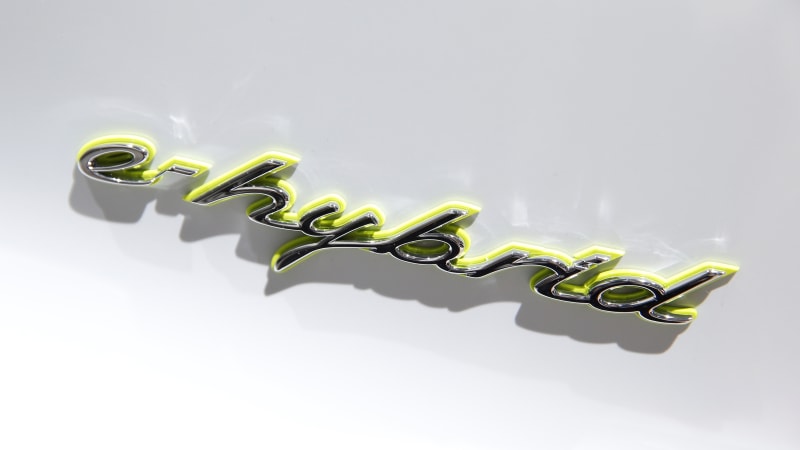
Analysis: U.S. automakers race to build more hybrids as EV sales slow - Autoblog
As U.S. sales of gas-electric hybrid vehicles surge and EV sales cool, automakers are betting on consumer demand for a compromise: hybrids. Ford for example can't build hybrid Mavericks fast enough.
...Fascinating video...
Sorry; what video? Can you please provide an address or link? Thanks.
*****
Meanwhile, I am seeing a lot of other online articles about EV adoption. For example this one (focusing on EV adoption differences among various countries).
One warning for us all: Short-term or snap-shot analysis of long-term trends can easily cause erroneous assumptions and conclusions. For example, suppose you were a young, ambitious junior executive hoping to impress your (aging) bosses at a hastily-called crisis meeting by promoting likely optimistic growth of the product (see chart below) based on an up-to-the-minute snap-shot of data say in 1998 (or in 2014 or in 2019)? Oops! Say goodbye to that job. I think that you'd agree that stepping back and with the benefit of taking in all of the data suggests a much more pessimistic attitude is warranted (and that in this case meaningful appropriate corrective action is definitely necessary).
(By the way, these annual numbers happen to be the 18-49 Demo percentage share for Academy Awards live television show viewership. Part of the downturn is of course due to overall decline in television viewership as a whole, as well as to major changes in how viewers get and watch TV shows. Nevertheless, if I was working for the Academy I'd sure as heck be worried.)
My point is, we see (Internet) headlines touting significantly increasing EV sales, and equally-convincing announcements of EV sales doldrums. Let's assume both are accurate (and not "fake news" planted by the opposing sides). Regardless, it is all "static." Like we see in stock market indices (see Dow Jones Average for 2010-2024, below).
On a day-to-day basis the market goes up, the market goes down. But you arguably can't go wrong investing in the stock market long term. (Yes, yes, I know; provided your diversify and take other reasonable precautions. But my point is, despite occasional downturns the sucker keeps generally going up.)
Will BEVs eventually predominate among the personal-vehicle marketplace? My guess (and it is just a guess) is, yes. When? Don't know. (But that's what the OP was meant to discuss.) And can we predict what is going to happen or how long it will take from any one instant (snapshot) in time? Nope.
Will there be push-back from competing products? You bet. Will ICE drivers resist making the switch. Of course. Will there be ups and downs in EV sales? Yep. And will various Washington big-wigs try to make political hay over both sides of the issue. Naturellement. Or could all this be rendered moot by some calamitous event (e.g., super-volcano eruption; large asteroid/comet strike; mega-pandemic; evil space aliens)? I sure hope not. (Instead, the chance of plain old nuclear war seems much more likely.) Also possible, I suppose, is some other technological breakthrough; but for now these seem more likely to be in the nature of where the electricity comes from (solar; fusion) or how efficiently it is stored (better batteries). It appears that all- or partial-electric-motor-powered vehicles are the likely future of personal transportation, at least in the near future.
All we can do is sit back, observe, and enjoy this fascinating point in the history of technology--we are probably seeing the advent of another significant change (regardless of exactly how long it takes).
cwerdna
Well-Known Member
No idea what video you're talking about but either you or they are wrong on timelines/years and have some goofy ideas of "very early" or "early" adopters.Guys
Fascinating video
Think they break it down to four groups but feel there is five
USA Pure EV Adoption:
1. Very early adopters 2009-2017 MS M3 MX
2. Then early adopters 2017 to 2022 +MY +Ioniq5, R1S, R1T, Lucid, EV6, etc Curious group, 3. first edge of main group, 2022-TBD +Mach E , lightening, EV9, BlazerEV, EX30, etc
(Feel Cybertruck is mostly
4. Main group, TBD, vehicles M2, TBD
5. Last Adopters TBD, TBD
First 2012 Tesla Model S Delivered To Earliest Depositor Steve Jurvetson (Video) - June 2012
1st "deliveries" of Model 3 to employees only didn't happen until mid-2017: Tesla delivers first Model 3 cars, here's what it's like behind the wheel. Dec 2017: First Confirmed Non-Employee Delivery Of The Tesla Model 3 – Seattle Electric Vehicle Assocation (SEVA).
Looks like Tesla has delivered the first Model X SUVs happened late Sept 2015.
I wouldn't consider ANYONE who got a Model 3 any vehicle after that to be an "early adopter". I'd argue that even Sept 2015 or later doesn't count as "early adaopter".
There were EVs in the early 1900s like Detroit Electric - Wikipedia. I physically saw File:Baker Electric (1902) front-left Toyota Automobile Museum.jpg - Wikimedia Commons at Toyota Automobile Museum | A museum that tracks the evolution and culture of cars in the world last year. The museum has looping videos of various ancient automobiles that they got running including some of what they had to do to get them running. Yes, their Baker Electric did run.
I'd consider folks who drove these to be early adopters:
Conversions to EVs or any BEVs before Dec 2010. Some examples are below.
eBay Watch: 1980 Comuta-Car--Retro Urban Electric Car (more at Citicar - Wikipedia)
General Motors EV1 - Wikipedia (Darell's Electric Vehicle Page has some videos)
Gen 1 of
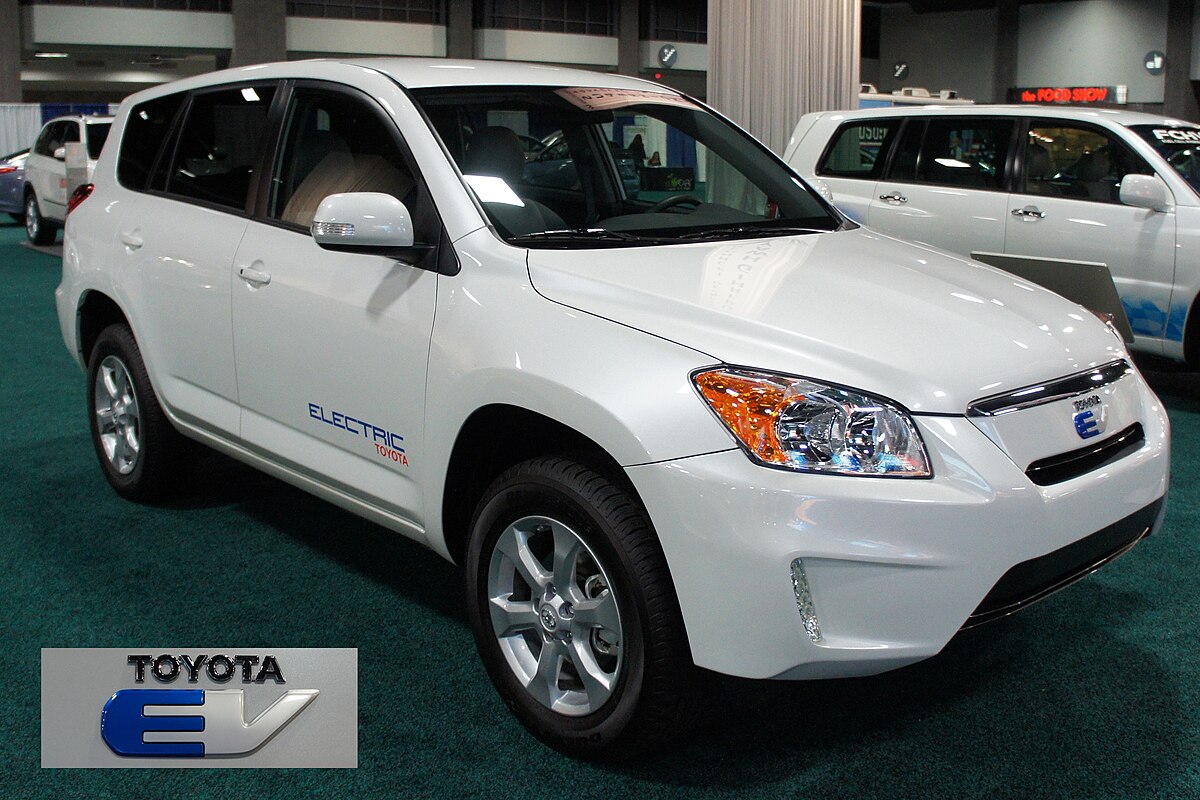
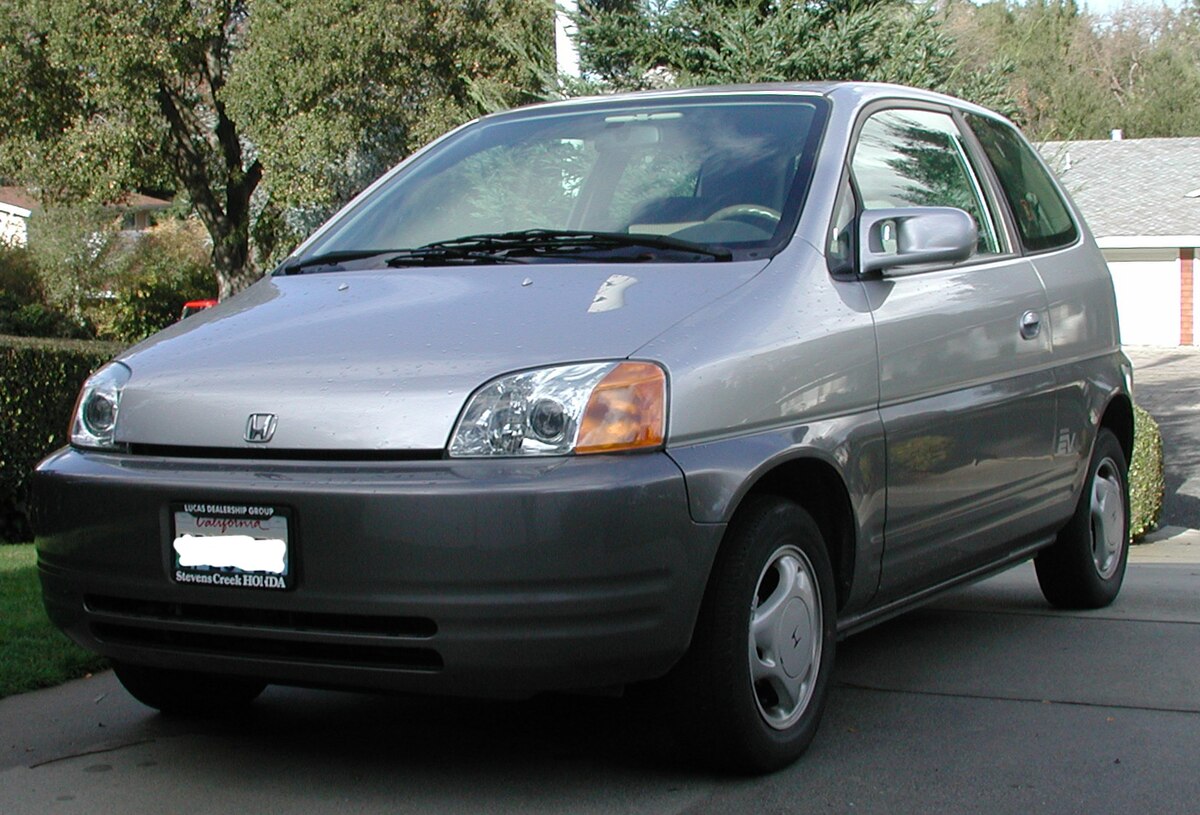




I'd say 2011 and 2012 Leaf lessees/buyers would be in the mid to tail end of early adopter. My 1st BEV was a '13 Leaf and I began in late July 2013 even though I'd been following it before it shipped. I 1st test drove a pre-production (AFAIK) one in Nov 2010 at an EVent.
How about Chevy Bolt, that began shipping Dec 2016? Or compliance car Spark EV that began shipping June 2013? First 2014 Chevy Spark EV Sold: Why We Chose This Electric Car
There were numerous US-market EVs that shipped between Leaf (Dec 2010) and Dec 2017 like Fiat 500e, Coda, (Tesla-powered) gen 2 Rav4 EV, Fit EV, Focus Electric, i-MiEV, Mercedes B-Class ED, 2014 Smart ForTwo Electric Drive: What It's Like On The Road, etc.
Last edited:
David_Cary
Active Member
I am trying to figure out what bigger picture look leads to a "pessimistic" attitude and corrective action?
You made some comparisons to stock market and Academy awards viewership. And BTW - the Dow isn't a great catchall for the stock market and hasn't been for a long time.
In each of the last 12 quarters there has been an increase in percentage of sales whether you include PHEV or not. At least from what one chart shows me. I don't really see the slow down at all. I see a lot of headlines. And all car sales will be down for Q1 most likely - so sales of EVs might be down but percentage is really the marker and the topic of this thread.
Higher interest rates probably hit EVs more. The geezers/boomers/myself almost included - don't need car loans. The under 50 crowd does - and they would tilt more towards EVs (I would presume). Although they are more likely to be renters so that maybe there isn't a difference.
You made some comparisons to stock market and Academy awards viewership. And BTW - the Dow isn't a great catchall for the stock market and hasn't been for a long time.
In each of the last 12 quarters there has been an increase in percentage of sales whether you include PHEV or not. At least from what one chart shows me. I don't really see the slow down at all. I see a lot of headlines. And all car sales will be down for Q1 most likely - so sales of EVs might be down but percentage is really the marker and the topic of this thread.
Higher interest rates probably hit EVs more. The geezers/boomers/myself almost included - don't need car loans. The under 50 crowd does - and they would tilt more towards EVs (I would presume). Although they are more likely to be renters so that maybe there isn't a difference.
I am trying to figure out what bigger picture look leads to a "pessimistic" attitude and corrective action?
I wasn't clear.
I was using a random example--i.e., the yearly ratings for the Academy Awards TV show. In that example, the viewership trend over time is clearly down, down, down. (Alarmingly so, I would say.) However, a single "snapshot" might paint a different (incorrect) picture--that the trend was (over optimistically) going back up. Taken as a whole, the Academy of Motion Picture Arts and Sciences should be pessimistic and motivated to do something (what?) to correct the slide in ratings. To their credit they have tried various things (e.g., different hosts, no hosts, animated presenters, Snow White and Rob Lowe, [phony?] slaps, announced winner mix-ups), but the ratings keep (generally) falling.
You made some comparisons to stock market and Academy awards viewership. And BTW - the Dow isn't a great catchall for the stock market and hasn't been for a long time.
True. I just used a handy, recognizable index. I think that the point would be the same using pretty much any SM index, but you are correct that the Dow isn't a particularly accurate index of precise SM movement.
In each of the last 12 quarters there has been an increase in percentage of sales whether you include PHEV or not. At least from what one chart shows me. I don't really see the slow down at all. I see a lot of headlines. And all car sales will be down for Q1 most likely - so sales of EVs might be down but percentage is really the marker and the topic of this thread.
Again, I wasn't clear. I should have said that believe that the trends in EV sales and in the EV portion of the North American personal vehicle fleet will generally be upwards over time. (Probably an S-shaped curve that eventually will level off, I would guess.) In the case of EVs, the "static" will cause the data line to go up and down at any one point (a "snapshot"), but the overall trend will probably be generally be upwards. I happened to use the downwards Academy Awards example (which I was familiar with), which maybe wasn't the best idea. Also, I "Googled" stock market trends and the graph I happened to grab was for the Dow index. which I thought was generally illustrative of the issue I was trying to make.
My Message: Try not to make predictions based on snapshot data. (But we all sometimes do it.)
Last edited:
cwerdna
Well-Known Member
Sorry that there's a lot of politics in this article that I've only skimmed:
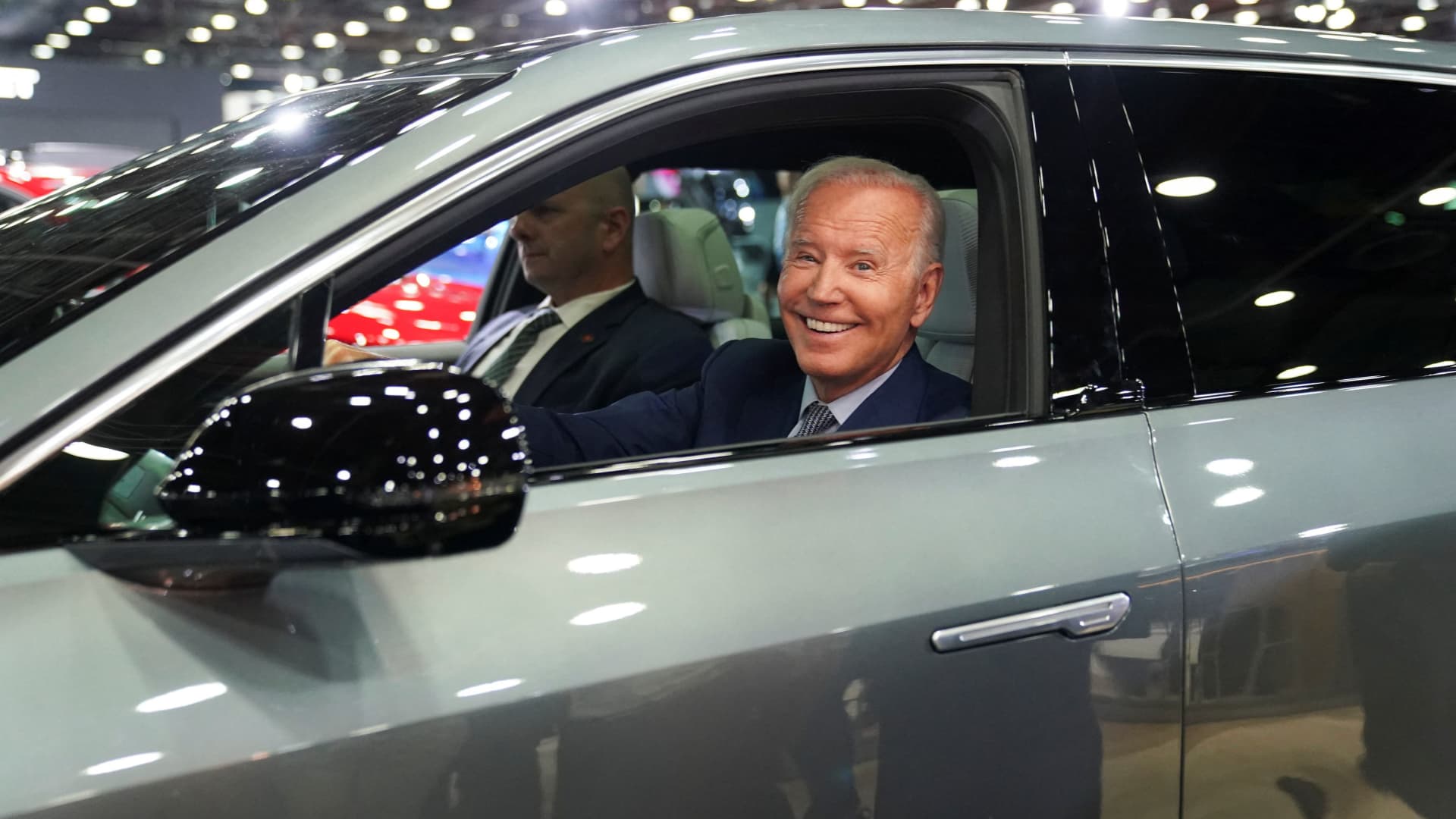
 www.cnbc.com
"The EPA said that under its final rule, the industry could meet the limits if 56% of new vehicle sales are electric by 2032, along with at least 13% plug-in hybrids or other partially electric cars, as well as more efficient gasoline-powered cars that get more miles to the gallon."
www.cnbc.com
"The EPA said that under its final rule, the industry could meet the limits if 56% of new vehicle sales are electric by 2032, along with at least 13% plug-in hybrids or other partially electric cars, as well as more efficient gasoline-powered cars that get more miles to the gallon."
IMHO, there's no way this will stand. Lots of parties will push back on this as being way too aggressive a timeline. I still stand by my vote of after 2040.

EPA issues new auto rules aimed at cutting carbon emissions, boosting electric vehicles and hybrids
The rules relax initial tailpipe limits proposed last year but eventually get close to the same strict standards set out by the Environmental Protection Agency.
IMHO, there's no way this will stand. Lots of parties will push back on this as being way too aggressive a timeline. I still stand by my vote of after 2040.
Similar threads
- Replies
- 19
- Views
- 1K
- Replies
- 2
- Views
- 630
- Replies
- 5
- Views
- 1K


